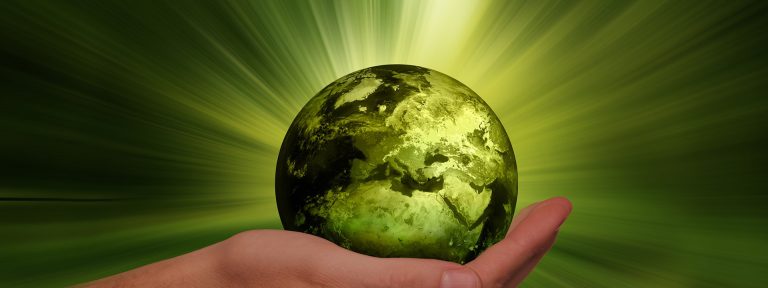It’s not only the BIG things that matter.
It’s the LITTLE things done,
by multiple people, multiple times over…
That is what makes the real difference!
Ever wondered how spending an entire day without electricity would be like? Right from lighting up a dark room, cooling the house with ceiling fans and ACs, glugging cold water out of the refrigerator, entertaining yourselves with the TV and most importantly, charging your phones and laptops, electricity has come a long long way. Calling it a ‘necessity’ would perhaps be an understatement then. In fact we cannot even image living without it.
And in this scenario, imagine producing your own electricity, consuming it yourself and perhaps even earning from it…wouldn’t that be utopia. Believe it or not, the world is slowly heading towards it!
Energy demand worldwide has grown by 2.3% last year, its fastest pace this decade, an exceptional performance driven by a robust global economy, stronger heating and cooling needs in some regions, advent of smart cities, industrial development and need for electricity based gadgets, vehicles, etc.

Owing to the increasing demand for electricity, demand for all fuels has increased, with fossil fuels meeting nearly 70% of the demand for the second year running. Electricity continues to position itself as the “fuel” of the future, with global electricity demand growing by 4% in 2018. Together, China, the United States, and India account for nearly 70% of the rise in energy demand around the world.
As a result, global energy-related CO2 emissions rose by 1.7% to 33 Gigatonnes (Gt) in 2018. Coal use in power generation alone surpassed 10 Gt, accounting for a third of total emissions. Aren’t these numbers shocking?
On the flip side of it, access to electricity is a key pillar for human wellbeing, economic development and poverty alleviation. Ensuring everyone has sufficient access is an ongoing and pressing challenge for global development. However, if we are to meet our global climate targets and avoid dangerous climate change, the world needs a significant and concerted transition in its energy sources.
Balancing the challenge between development and environment therefore provides us with an ultimate goal of ensuring everyone has access to enough sustainable energy in order to have equal opportunities for growth and better standard of living.
CLEAN TECHNOLOGY COMES TO THE RESCUE.
The depleting natural resources and fossil fuels, and ever increasing dependence on electricity leaves us with no choice but to look for alternate sources of energy that will suffice our electricity needs and yet not harm our planet.
“Electric power is everywhere present in unlimited quantities and can drive world’s machinery without the need for coal, oil or gas.” – Nikola Tesla
All the energy that we need to satisfy our electricity requirement is available above the earth without having to dig up the precious resources deep within our planet and destroy the natural equilibrium. The major sources of energy including the sun, wind, water, and biomass are all available at our disposal to be consumed effectively. And that is where ‘Clean technology’ or ‘Cleantech’ plays an important part. Clean technologies are those that when applied, do not produce any side effect or cause transformation of environmental balance or affect natural systems. Combining sustainable resources of energy with the latest technology to produce electricity gives rise to a clearer, greener and a smarter world.
India is a land blessed with over 300 sunny days, a robust network of 12 perineal rivers and enough geographical landscapes that can harness the power of wind, thus making it a rich country in terms of renewable resources. And so are many other countries that have either one or multiple resources to take advantage from.
The International Solar Alliance initiated by India & France and championed by the prime Minister of India, Shri Narendra Modi in 2015, is proof enough that the world is moving towards cleaner and greener alternatives. The ISA is on a growth trajectory with over 76 countries falling along the solar rich belt joining in on its mission.
With additional support from the governments across the world, it will now be easier to build technologies using AI, IoT and IIoT to harness the available renewable resources and the make most out of them. As we can see, the two areas that until a while ago seemed to have little to do with each other, such as environmental care and technological development, are being combined in order to generate a technology industry compatible with the sustainable development of the environment.
With annual investments above USD 300 Billion, it would be safe to say that the ‘Third Industrial Revolution’ has begun! And Evolute is proud to be a part of this revolution with its comprehensive Cleantech solutions laced with innovative AI and IoT based technologies and higher efficiencies to ensure safe, reliable and affordable electricity for urban consumption as well as rural electrification needs.
 Our mission to Techpowering the World™ begins with a promise to ourselves and our consumers to build solutions that are not just technologically advanced, secured and intuitive but also responsible. And in doing so we are mindful of the affordability and providing equal opportunity for all to access the basic form of energy that is made available by Mother Nature. All you have to do is harness it without causing any harm to nature itself.
Our mission to Techpowering the World™ begins with a promise to ourselves and our consumers to build solutions that are not just technologically advanced, secured and intuitive but also responsible. And in doing so we are mindful of the affordability and providing equal opportunity for all to access the basic form of energy that is made available by Mother Nature. All you have to do is harness it without causing any harm to nature itself.
Starting with end-to-end home lighting solutions and customized energy storage systems Evolute Group has now ventured into more technologically advanced solutions fit for the smart cities as well as for growing rural developmental projects across the globe.
The future after all is in our hands…to techpower ourselves and the planet!
*Images are for reference only
Sources
https://yearbook.enerdata.net/electricity/electricity-domestic-consumption-data.html
https://www.bp.com/en/global/corporate/energy-economics/statistical-review-of-world-energy.html





